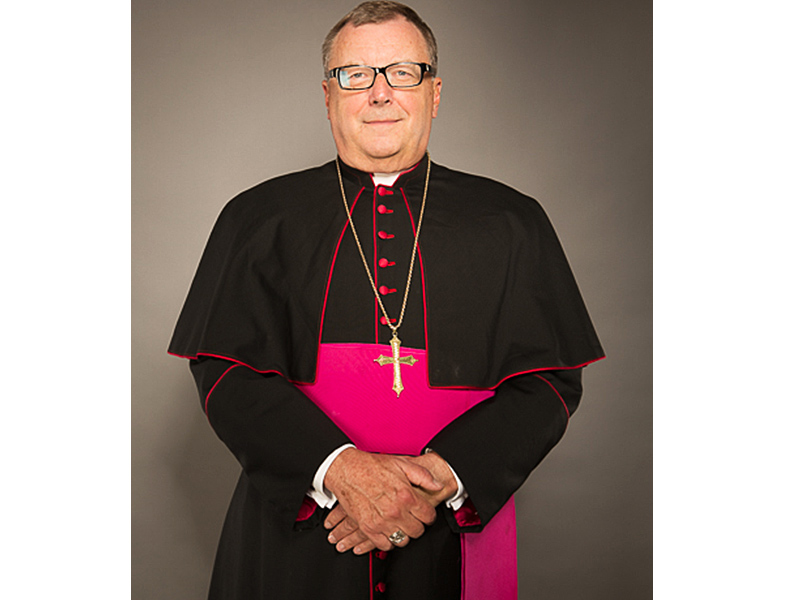In an effort to improve the historically fraught relationship between the Jewish and Catholic communities, the Canadian Conference of Catholic Bishops (CCCB) and the Canadian Rabbinic Caucus (CRC) convened late last month for the first national, bilateral dialogue between the two groups.
Launched as part of the 50th-anniversary celebration of Nostra Aetate, the declaration by the Second Vatican Council that rejected anti-Semitism and underscored the Jewish roots of Christianity, the first meeting in Ottawa was attended by some 30 bishops and 15 rabbis. It addressed the importance of changing Catholic perceptions of the Jewish community, Israel’s significance to Jews, and working together to achieve common goals.
“For many people who do not come out of a historic awareness, they assume that Jews and Catholics have always sort of gotten along and there is no real awareness of the historic conflict and difficulty that we experienced,” said Rabbi Baruch Frydman-Kohl, one of the representatives from the CRC, an affiliate of the Centre for Israel and Jewish Affairs (CIJA). “We believe that there is still a lot of work to be done in bringing to a parish and congregational level the awareness of what had been the historic teaching of contempt, where that had led to, and how the Church has been engaged in a long process of tshuvah in turning away from that old teaching.”
He said one key point of discussion is that “it is impossible to understand Jewish life in the 21st century without coming to grips with the two events of the 20th century that were so significant for us – both the Holocaust and the birth and continued existence of the State of Israel. For us, the State of Israel is not just a political state, it also has theological implications.”
READ: Catholic archbishop and Vatican envoy visit Jewish community campus
The Most Reverend John A. Boissonneau, Auxiliary Bishop of Toronto, representing the CCCB, the national body of Canadian bishops, said in a statement that “Nostra Aetate was one of the most precious gifts of the [Second Vatican] Council, as it reset the course for Catholic-Jewish relations. Nostra Aetate gave Catholics an authoritative teaching that confirmed the spiritual bond between Jews and Christians and emphatically denounced unambiguously that anti-Semitism was incompatible with the gospel of love and ‘foreign to the mind of Christ.’”
In his address to the delegates at the celebration at an Ottawa cathedral, Rabbi Frydman-Kohl spoke about the significance of the dialogue and the effort to improve ties between the two communities.
“Our newly established bilateral dialogue, exploring Jewish-Catholic relations and what our faith traditions might offer Canada, is long overdue. While differences between our two faith communities still exist, we have moved from disputation to dialogue, persecution to partnership, confrontation to co-operation and conflict to conciliation,” he said.
“Anti-Jewish theology focusing on the charges of deicide and perfidy pervaded western thought to such an extent that slaughtering Jews en masse could be imagined and take place. This denigration and demonization of Jews has been eliminated from Catholic teaching.”
Speaking to The CJN, Bishop Boissonneau said he hopes this dialogue will help the communities understand each other better.
“We hope to continue the type of conversation in a bilateral way that has been happening all over Canada, but this is more on a national level, with participants from Vancouver, Toronto, right across the country, with French and English participants.”
READ: Church hosts Shoah survivors for Nostra Aetate event
Rabbi Frydman-Kohl said although there had been dialogue between Jews and Christians nationally for many years, it ended in 2012 when CIJA cut ties with the United Church of Canada after it voted to boycott goods produced in Israeli settlements.
“But it was clear that some of the Christian denominations wanted to maintain a conversation [locally] on an ongoing basis, even if we weren’t doing it, all of us together. We were very pleased when the Catholic community responded to our interest and showed a similar interest,” he said.
“As Jews, as part of the pro-Israel community, we are concerned with how we maintain a relationship with the Catholic community in Israel… on a theological level without getting wrapped up in the political.”
The next meeting is in May in Montreal.
